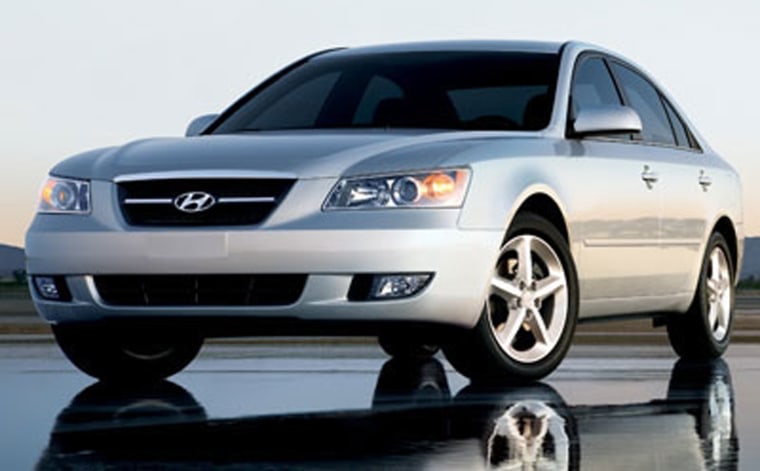Take a look at the market's 12 fuel-economy leaders, and you might expect to see a list of gas-electric cars.
Not so much. Only three of the 12 vehicles on it are hybrids.
Instead, plain, old-fashioned, gas-powered vehicles with traditional, internal-combustion engines dominate.
That's not the only surprise. The most fuel-efficient subcompact is a Honda Civic powered by natural gas. The most fuel-efficient two seater is a $46,000 Lotus — a car that can accelerate from zero to 60 mph in 4.9 seconds, and tends to come in such screaming colors as yellow, orange and aubergine.
The other pump busters on our list, which is ranked according to recently released data from the U.S. Environmental Protection Agency and arranged by EPA vehicle class, tend to be compact models with economical engines.
Ford Motor's Ranger is the market's most fuel-efficient pickup because it is smaller than its competitors, and uses a four-cylinder engine, not a porky V-8. The four-cylinder engine on Ford's compact, $14,000 Focus wagon gets 37 miles per gallon on the highway, making it the most fuel-efficient wagon.
But we like to begin at the dealership.
Buying the right car is the first step in cutting down gas mileage.
Say you have your eye on a Chrysler 300 sedan. You should be aware that although many 300 models look similar, they produce wildly different results based on what's under the hood.
Purchase an entry-level, $25,000 300, with a six-cylinder engine and automatic transmission, and your city/highway fuel economy will be a respectable 21/28 miles per gallon. Spring for the fancy, hot-rod 300C SRT8 model--one with a huge, 6.1-liter, V-8 engine — and your economy plummets to 14/20 miles per gallon. The cheaper 300 will cost you over $1,000 less to fuel each year.
On the subject of finding cars with the best mileage, though the EPA issues industry-accepted fuel-efficiency data, we must add that the agency has come under fire in recent years for conducting mileage tests that don't approximate typical driving. Hybrid drivers know this all too well, since they are finding it very hard to get, for example, the 60 city miles per gallon that a Prius window sticker promises. Little things like whether the air conditioner is on while you drive can affect mileage, and the way the EPA tests mileage is pretty different from the way most people drive their cars.
In determining gas mileage for this story, we looked at each nameplate's optimum fuel economy. That is, the figures reported here apply to the combination of specifications that will generate the best gas mileage.
We ranked the list's vehicles based on what it costs to fuel them per year, according to the EPA. We measured cars by fueling cost because the EPA lists two gas-mileage figures per car, city and highway mileage, and we did not want to make an arbitrary decision about which mileage figure is more important. When you buy a car, your daily driving routine will determine whether city or highway mileage is more important for you.
Our source for fuel-economy data was the EPA's Web site. By publication time, the agency had not responded to requests for confirmation.
